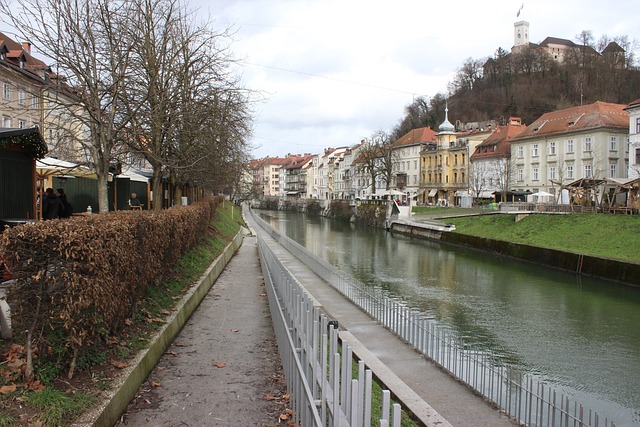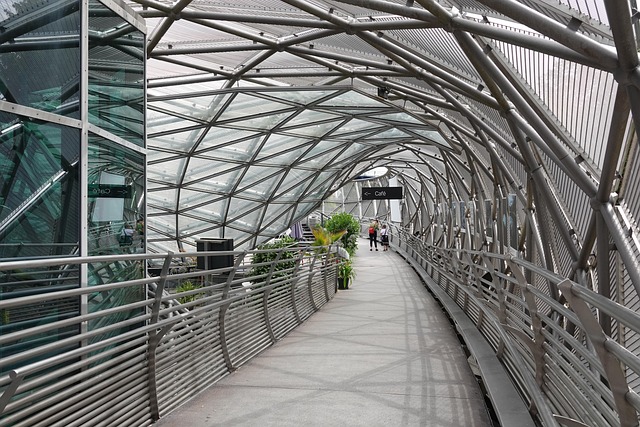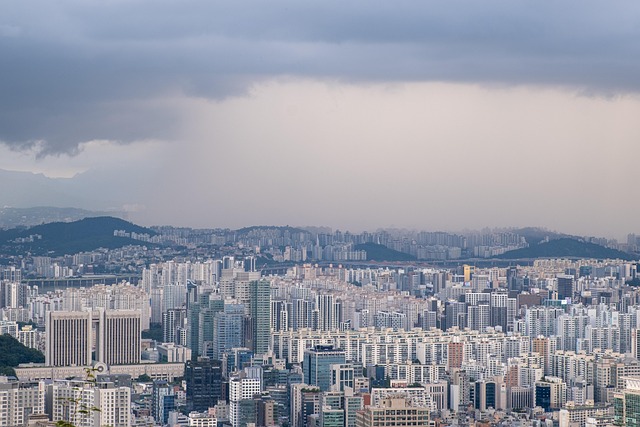Karachi, Pakistan's bustling metropolis, faces significant solid waste management challenges due to rapid urbanization. With diverse waste sources, including plastic, and limited resources, the city struggles with environmental hazards and public health issues. Despite efforts like informal recycling and government initiatives, equitable access to waste services is hindered. Effective solutions, such as source segregation, public-private partnerships, and technology integration, are crucial for Karachi's sustainable development. Collective action from residents, businesses, and civil society, coupled with innovative practices, can transform Karachi into a cleaner urban center, setting an example for regional sustainable development.
Karachi, Pakistan’s bustling metropolis, faces significant challenges in waste management, particularly along Jinnah Avenue, one of its major thoroughfares. This article delves into the complex scenario, exploring the current strategies and identifying best practices for efficient waste disposal. We examine the role of community involvement in achieving sustainable solutions and look ahead to innovative ideas that can transform Karachi into a cleaner, more livable city. By understanding the unique challenges, we aim to inspire actionable steps towards a greener future for this vibrant urban center.
- Understanding Karachi's Waste Management Scenario
- Challenges and Current Solutions Along Jinnah Avenue
- Best Practices for Efficient Waste Disposal
- Community Involvement: A Key to Success
- Future Prospects: Innovative Ideas for a Cleaner Karachi
Understanding Karachi's Waste Management Scenario

Karachi, Pakistan’s vibrant metropolis, faces unique challenges in its waste management scenario. As one of Asia’s largest cities, it generates an enormous volume of solid waste daily, primarily due to its bustling nature and rapid urbanization. The primary sources include domestic, commercial, and industrial trash, with plastic being a significant concern. Despite efforts to improve collection and disposal systems, the city struggles with efficient management, often leading to environmental hazards and public health issues.
The landscape of Karachi’s waste management is complex. Informal recycling practices are common, but these ad-hoc solutions contribute to air and water pollution. The local government has been implementing strategies to streamline collection and introduce modern disposal techniques. However, the vastness of the city and limited resources pose challenges, especially in reaching all neighborhoods equitably. Effective waste management is crucial for Karachi’s sustainable development, and ongoing efforts aim to transform this scenario, making it a model for urban cleanliness and environmental stewardship.
Challenges and Current Solutions Along Jinnah Avenue

Jinnah Avenue, a bustling thoroughfare in Karachi, presents unique challenges in waste management due to its high traffic volume and diverse commercial activities. The primary issue lies in balancing the city’s rapid urbanization with efficient waste disposal systems. Despite efforts to implement robust recycling programs, illegal dumping remains prevalent, particularly along the avenue’s periphery, leading to environmental degradation and health hazards.
Current solutions include collaborations between local authorities and community-based initiatives focusing on enhancing recycling infrastructure and promoting citizen awareness. Mobile recycling units and dedicated collection points have been introduced to facilitate easier access for residents. Moreover, innovative technologies are being explored, such as smart waste management systems, to optimize collection routes and reduce the environmental impact of waste accumulation, specifically targeting Jinnah Avenue’s dense commercial hubs.
Best Practices for Efficient Waste Disposal

In Karachi, efficient waste management is a multifaceted challenge but also an opportunity for a healthier, more sustainable city. Best practices involve source segregation—separating organic from recyclable and hazardous materials at their origin. This not only simplifies collection but also increases recycling rates, reducing the burden on landfills. Implementing comprehensive recycling programs tailored to local needs and culture is key. Encouraging residents to participate through education and awareness campaigns can significantly improve waste disposal efficiency.
Additionally, fostering public-private partnerships for waste management initiatives has proven effective in Karachi. These collaborations can lead to innovative solutions like using waste-to-energy technologies or establishing recycling facilities. By leveraging technology and community involvement, the city can move towards a more circular economy, where waste is minimized and resources are reused, contributing to a cleaner and greener future for all residents.
Community Involvement: A Key to Success

In the vibrant city of Karachi, effective waste management is a collective effort that requires community involvement. The success of any sustainable waste management initiative near Jinnah Avenue or elsewhere in the metropolis hinges on active participation from residents, local businesses, and civil society organizations. By fostering a culture of responsible waste disposal, recycling, and resource recovery, communities can significantly contribute to keeping their neighborhoods clean and healthy.
This collaborative approach involves organizing awareness campaigns, promoting proper segregation at source, and setting up community-driven recycling centers. Engaging with local leaders and institutions ensures that waste management practices are tailored to the unique needs of Karachi’s diverse population. When folks from all walks of life come together, it not only enhances the aesthetic appeal of public spaces but also promotes a sense of collective responsibility for the environment, leaving a positive impact on the city as a whole.
Future Prospects: Innovative Ideas for a Cleaner Karachi

Karachi, as Pakistan’s economic powerhouse, faces significant challenges in waste management, especially along areas like Jinnah Avenue. However, looking ahead, there’s a promising future with innovative ideas that can transform the city into a cleaner, more sustainable urban centre. Technologies such as smart waste collection systems, where sensors monitor bin levels and optimize routes, could significantly enhance efficiency. Additionally, implementing circular economy principles offers a chance to recycle and repurpose waste materials, reducing the strain on landfills. Green initiatives like community-based recycling programmes and public awareness campaigns can also play a pivotal role in encouraging responsible waste disposal habits among residents.
The integration of renewable energy sources for waste-to-energy projects holds potential for generating clean electricity while addressing the city’s solid waste issues. Moreover, leveraging data analytics to predict and manage waste generation patterns can lead to more proactive planning and reduced environmental impact. With these innovative solutions, Karachi has the opportunity to set an example for sustainable urban development in the region, ensuring a cleaner and healthier future for its residents.
Karachi’s journey towards efficient waste management, as highlighted by the challenges and best practices discussed along Jinnah Avenue, demonstrates that a cleaner city is achievable. By leveraging community involvement and embracing innovative solutions, Karachi can transform its waste management scenario. Implementing these strategies will not only beautify the city but also contribute to a healthier and more sustainable environment for its residents. In conclusion, with dedicated efforts and collaborative action, Karachi has the potential to become a shining example of effective waste management in Pakistan.

Leave a Reply
You must be logged in to post a comment.